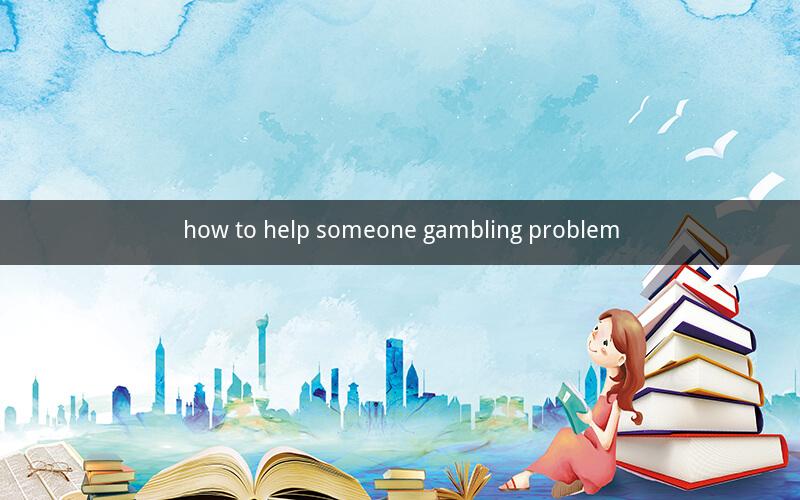
Contents
1. Understanding the Problem
2. Communicating with the Gambler
3. Encouraging Professional Help
4. Supporting the Gambler's Family
5. Setting Boundaries
6. Educating About the Risks of Gambling
7. Creating a Supportive Environment
8. Monitoring Progress
9. Encouraging Responsible Choices
10. Dealing with Relapse
1. Understanding the Problem
Recognizing the signs of a gambling problem is the first step in helping someone you care about. Look for behaviors such as secrecy, financial strain, and an increasing amount of time spent gambling. Understanding the psychological and emotional aspects of gambling addiction can also provide insight into how to approach the situation.
2. Communicating with the Gambler
Open and honest communication is crucial. Approach the topic with empathy and without judgment. Use "I" statements to express your concerns, such as "I'm worried about you" instead of "You're a problem gambler." Encourage them to share their feelings and experiences without fear of criticism.
3. Encouraging Professional Help
Suggest seeking professional help from a therapist or counselor specializing in gambling addiction. They can provide personalized strategies and support for overcoming the addiction. Research local resources and support groups to ensure the gambler has access to the help they need.
4. Supporting the Gambler's Family
Gambling addiction affects not only the individual but also their family. Offer support to the gambler's loved ones by encouraging them to seek counseling or join support groups for family members of problem gamblers. Provide information on resources available to help them cope with the stress and emotional turmoil.
5. Setting Boundaries
Establish clear boundaries to protect yourself and the gambler. This may include limiting financial support, setting rules about gambling behavior, and ensuring the gambler is not exposed to triggering environments. Boundaries can help create a safer and more supportive environment for recovery.
6. Educating About the Risks of Gambling
Educate the gambler and their family about the risks associated with gambling addiction. Discuss the potential consequences, such as financial ruin, legal problems, and mental health issues. Understanding the gravity of the situation can help motivate the gambler to seek help.
7. Creating a Supportive Environment
Encourage the gambler to surround themselves with positive influences. This may involve limiting contact with people who encourage gambling, finding new hobbies, and engaging in activities that promote mental and emotional well-being. A supportive environment can help the gambler stay focused on their recovery goals.
8. Monitoring Progress
Regularly check in with the gambler to monitor their progress. Offer praise for small victories and encourage them to celebrate milestones. Be prepared to offer support during setbacks, as relapse is a common part of the recovery process.
9. Encouraging Responsible Choices
Help the gambler develop strategies for making responsible choices. This may include setting a budget, using self-exclusion programs, and learning to recognize the signs of a gambling relapse. Encouraging responsible choices can help prevent future addiction issues.
10. Dealing with Relapse
Relapse is a possibility in the journey towards recovery. Be prepared to offer support and reassurance during these difficult times. Help the gambler learn from their mistakes and develop new coping strategies to prevent future relapses.
Questions and Answers
1. Q: How can I help someone who is secretive about their gambling?
A: Encourage open communication and express your concern without judgment. Offer to listen and support them through their struggles.
2. Q: What if the gambler is unwilling to seek help?
A: Continue to offer support and resources, but also be prepared to set boundaries to protect yourself and the gambler.
3. Q: How can I support a family member who is affected by a loved one's gambling addiction?
A: Encourage them to seek counseling or join a support group for family members of problem gamblers. Provide information on resources and offer emotional support.
4. Q: What should I do if the gambler starts to relapse?
A: Offer support and reassurance. Help them understand that relapse is a part of the recovery process and encourage them to seek help immediately.
5. Q: How can I help the gambler develop responsible gambling habits?
A: Encourage them to set a budget, use self-exclusion programs, and learn to recognize the signs of a gambling relapse.
6. Q: What resources are available for problem gamblers?
A: Research local resources, such as counseling services, support groups, and hotlines dedicated to gambling addiction.
7. Q: How can I help the gambler rebuild their financial stability?
A: Encourage them to create a budget, seek financial counseling, and explore options for debt consolidation or repayment plans.
8. Q: What if the gambler is also struggling with other addictions?
A: Encourage them to seek help for all their addictions. A comprehensive approach to treatment can improve their chances of recovery.
9. Q: How can I support the gambler's family during the recovery process?
A: Offer emotional support, provide information on resources, and encourage them to seek counseling or join support groups.
10. Q: What can I do to promote a supportive environment for the gambler?
A: Encourage them to surround themselves with positive influences, limit contact with triggering environments, and engage in activities that promote mental and emotional well-being.